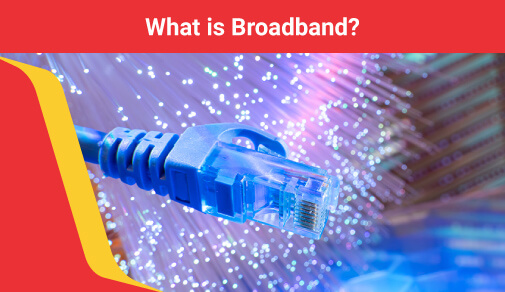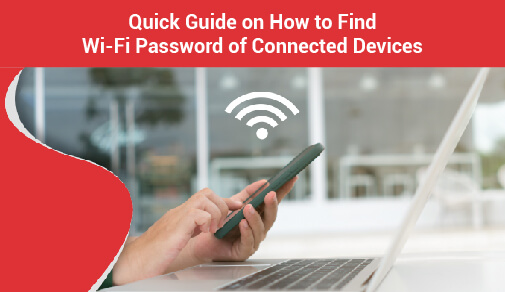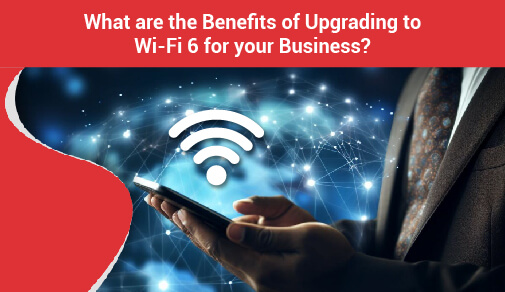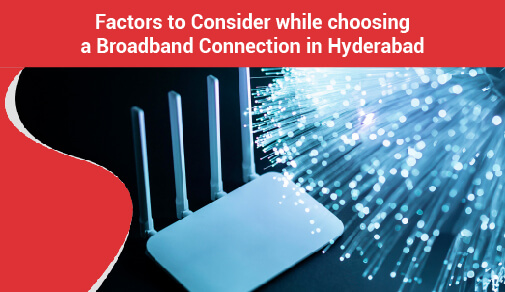What is Broadband?
-
0
-
-
9 minutes

Almost everyone has an internet connection at home and at work. People use it to surf the web, watch movies and television shows, check their emails, message friends and family, and do many other activities. It wouldn't be wrong to say that human lives have become completely dependent on the internet. Even if the internet service is down for five minutes, people start feeling restless and frustrated. They quickly contact their internet provider to ask when the service will be restored.
But we hardly give a thought to what makes the internet so accessible and dependable in our lives. The answer is a broadband connection. But what exactly is a broadband connection? What are the different types, and why do people need them? How to choose the best broadband package?
Let's find out.
What Is Broadband Internet?
Broadband, also known as high-speed Internet, is an always-on internet connection that can provide speeds much faster than dial-up connections. It’s a type of internet access that allows users to surf the web, stream videos, download large files, and make voice or video calls faster than a traditional dial-up connection. Broadband connections are usually provided by cable, fiber optic, or DSL (digital subscriber line) providers.
Broadband connections are the preferred choice for businesses and households alike because of the many advantages they offer. Compared to dial-up connections, broadband offers higher speeds and more reliable service, is much easier to set up and use, and requires less time to download large files. Furthermore, broadband connections are much more secure than their dial-up counterparts and can be used to access more than one device simultaneously.
What Are the Types of Wired Broadband Connections?
Broadband connections are available as wired internet connections in various types, depending on the technology used. The most popular wired types offered by internet service providers are:
Cable Broadband
Cable broadband provides high speeds of up to 100 Mbps, making it ideal for streaming media and downloading large files. It uses a cable network to deliver internet access, so there is a need to have a cable connection in order to use this type of broadband.
Fiber Internet Broadband
Fiber internet broadband is the fastest type of connection, providing speeds up to 1 Gbps. It uses a combination of optical fibers and copper wires to deliver the internet, making fiber internet more reliable and faster than other types of broadband.
Fiber internet is the future of internet access. It will provide more reliable and faster speeds as compared to other types of wired and wireless internet connections. Thus, users who are looking for a new internet connection should opt for a fiber internet connection.
DSL Broadband
DSL broadband is the most widely used type of broadband service, offering speeds up to 100 Mbps. It uses digital subscriber line technology, or DSL, to provide internet access over a phone line. This type of broadband connection is more reliable than cable but not as fast.
In addition to wired connections, there are also wireless broadband services available. Wireless connections use radio signals to deliver internet access, making them ideal for mobile devices such as tablets and smartphones. Let's take a look at them.
Broadband Over Powerlines
Broadband Over Powerlines (BOP) is a type of broadband connection that uses power lines to deliver internet access. It is relatively cheaper than fiber and cable connections. It is a new technology in the internet broadband domain, but it promises substantial benefits in terms of speed and reliability. The best part, however, of BPLs is that they reduce the cost of setting up infrastructure for internet access. This is because they make use of the already installed power lines that are used for delivering electricity.
What Are the Types of Wireless Internet Broadband Connections?
Wireless internet refers to the use of a wireless network to provide internet access. It is generally used for mobile devices such as tablets and smartphones but can also be used for PCs, TVs, and game consoles. The most popular types of wireless broadband connections are:
Wi-Fi
Wi-Fi is the most commonly used type of wireless internet connection, providing speeds up to 1300 Mbps. It uses radio waves to transmit data between two or more devices, allowing them to access the internet without having to be connected via a cable. Most users access the internet through a Wi-Fi connection at home or in public places such as cafes and airports.
3G/4G
3G and 4G are wireless broadband services that use mobile data to provide internet access. They are typically used for mobile devices such as tablets and smartphones, providing speeds up to 100 Mbps.
3G services are already on their way out, with more providers now offering 4G services. 4G offers faster speeds and more reliable connections than 3G, making it perfect for everyday use.
5G
5G wireless technology is the latest advancement in wireless internet services, providing speeds up to 10 Gbps. It is still in its early stages of development but promises to revolutionize the way we access the internet. With each passing day, 5G is becoming more widely available and will soon be the go-to type of internet connection for households and businesses across the world.
Sattelite
Satellite internet broadband is provided via a satellite in geosynchronous orbit around the Earth. It is ideal for rural areas or other remote locations where other forms of broadband are not available, offering speeds up to 100 Mbps.
Starlink is a satellite internet broadband service that is provided by SpaceX. It offers speeds of up to 200 Mbps and is currently being tested in select areas. As of November 2022, Starlink internet has 3271 satellites in orbit. It is available in most parts of the US and Canada.
Broadband connections provide users with reliable, fast, and secure access to the internet. By understanding the different types of wired and wireless broadband connections, users can make an informed decision about which type is best for their needs.
How to Choose the Best Broadband Package?
When choosing a broadband internet package, it's important to consider the various factors that can affect the performance of the connection. Some of the key things to consider include the download and upload speeds, data limits, coverage area, cost, user reviews, customer service, and technical support.
Download And Upload Speeds
The download and upload speeds of the internet connection are the most important factors to consider. The higher the speed, the faster users will be able to access the internet, stream videos, and download large files.
Ideally, the speeds should be at least 50 Mbps for download and 10 Mbps for upload. Higher speeds will provide a better performance, especially if multiple users are connected to the same network.
Moreover, the speeds can get reduced during peak times due to the congestion of the network. Similarly, wireless connections tend to be slower than wired ones. Thus, choose a package that ensures good speeds even during peak times or if using Wi-Fi.
Data Limits
When choosing an internet package, it's important to check the data limits. Most providers offer packages with unlimited data, but if users are on a budget, users may want to choose one with limited data.
Before signing up for an internet package, check the data limit and make sure it's enough for the user’s needs. Typically, the data limit should be at least 100 GB per month for basic needs such as web browsing and streaming.
Coverage Area
The coverage area of the broadband connection should also be taken into consideration when choosing a package. Some providers offer packages with nationwide coverage, while others may have limited coverage in certain areas.
Type of Connection
As mentioned earlier, there are different types of broadband connections available such as DSL, cable, and fiber-optic. Each type has its own advantages and disadvantages, so users should do their research and choose the one that best suits their needs. Preferably, users should opt for an ISP that provides fiber-optic connections as they tend to offer faster speeds and better reliability.
Cost
The cost of the internet package should also be taken into consideration. Generally, the higher the speed of the connection, the more expensive it will be. Therefore, users should choose a package that provides a good balance of speed and affordability.
User Reviews
User reviews are also important when selecting an internet package. They can provide insight into the performance of the package, customer service, and support. Reading user reviews can help users make an informed decision about which provider to choose.
Customer Service and Technical Support
Finally, good customer service and technical support should be taken into account when choosing a broadband internet package. It's important to choose a provider that offers reliable customer service and technical support in case of any issues. This can be especially important if users are not tech-savvy and need assistance setting up the connection.
Overall, it's important to research the different packages available from the local internet service providers to find one that meets the needs and budget. Users should consider various factors to make sure they choose the best broadband package for their needs.
How To Check Internet Speeds?
Once users have opted for a broadband package, they should test the internet speeds to make sure they are getting what they paid for.
Users can check their internet speed using a speed test tool. This can be either a free online tool or a dedicated app provided by the Internet Service Provider (ISP). The speed test will measure the download and upload speeds of the connection, as well as latency and ping rate.
By regularly running speed tests, users can ensure that they are getting the performance they expect from their broadband connection. It can also help them quickly identify any issues with the connection and contact the provider for assistance.
Some popular tools for checking internet speed are Speedtest by Ookla, Fast.com, and Cloudflare. All these tools are free and easy to use.
Speedtest by Ookla
Speedtest by Ookla is one of the most, if not the most popular speed testing tools available. It offers free internet speed tests for both wired and wireless connections. Users simply have to visit the website or open their mobile app and run the test. Once the interface is loaded, they simply have to click on the 'Go' button to start the test. The test results will be displayed in a few seconds. It includes ping, download speed, and upload speed.
Fast.com
Fast.com is a free internet speed testing tool by Netflix which uses its own servers to provide accurate results. It is easy to use and requires no sign-up or registration. All users have to do is visit the website. The test will begin automatically. After the test is complete, users will be shown their download speeds. Upon clicking on the 'More Info' button, they will be presented with additional information, such as the latency and upload speed.
Cloudflare
Finally, Cloudflare is another free internet speed testing tool. It provides detailed information about the connection, such as ping, download speed, upload speed, jitter, and packet loss, among others. If users a looking for a more comprehensive speed testing tool, Cloudflare is the way to go.
Conclusion
We hope this blog helped answer the question: What is Broadband? In today's digital age, broadband internet connection has become an indispensable part of everyone's lives. Choosing the right broadband package is an important decision as it has a direct impact on internet speeds and performance. It's important that users research their options thoroughly and consider various factors such as cost, connection type, data limits, and customer service before making a decision.
Furthermore, users should also use a speed testing tool to check the quality of their internet connection. It's important to remember that different users have different requirements, so there can be no one-size-fits-all solution when it comes to broadband packages. We recommend that users take the time to find one that is most suitable for their needs.







